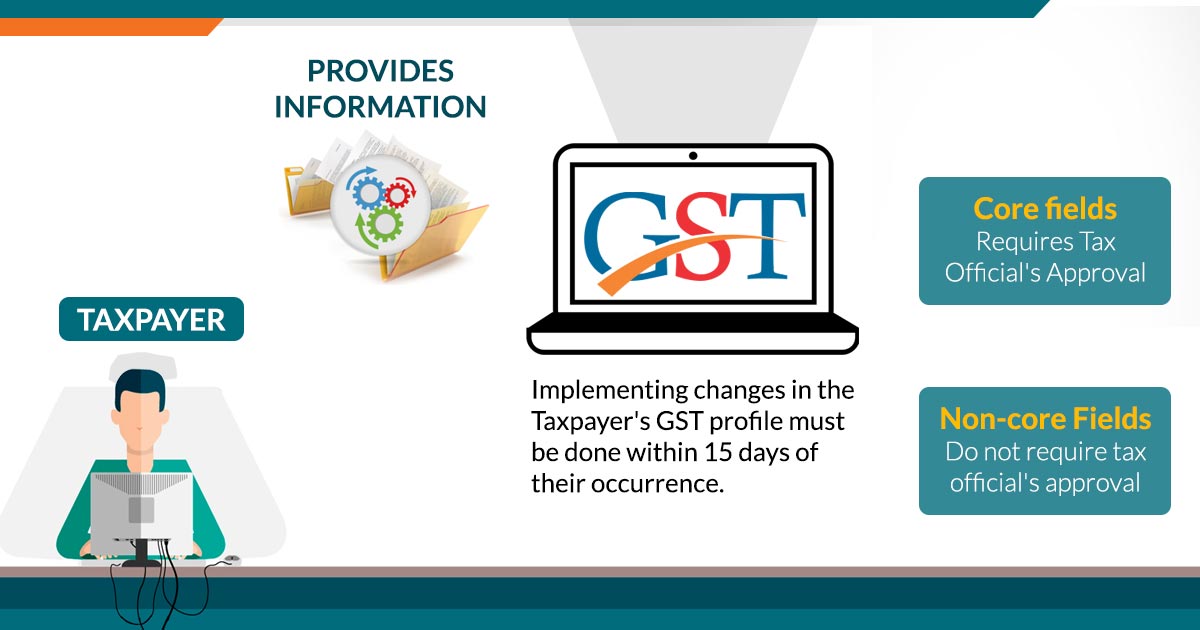Why Singapore GST Registration is Important for Your Startup
Wiki Article
The Ultimate Overview to Streamlining the GST Registration Process and Needs for Small Company Owners

Comprehending GST Basics
To grasp the basics of the Product and Provider Tax (GST) system, tiny business owners should first comprehend its underlying concepts and ramifications. GST is a value-added tax imposed on most products and solutions for residential consumption. It intends to improve the tax procedure by changing multiple indirect tax obligations enforced by the state and main federal governments. Under the GST regime, businesses are called for to register and collect tax on behalf of the federal government, making certain transparency and compliance.One of the essential principles of GST is input tax obligation credit, which enables companies to declare credit report for tax obligations paid on their acquisitions. This device prevents the cascading result of taxes and advertises effectiveness in the tax system. Furthermore, GST is a destination-based tax obligation, implying that the tax is levied at the point of usage instead of the point of beginning. This makes sure reasonable circulation of tax obligation revenue among states based upon where the goods or solutions are consumed. Comprehending these basic principles is vital for little business owners to browse the intricacies of the GST system and make sure compliance with the regulation.
Eligibility Criteria for Registration
Having actually established a foundational understanding of GST concepts, tiny company owners have to now meet specific qualification criteria to continue with the enrollment procedure (Singapore GST Registration). Companies that were signed up under the previous tax obligation routine (VAT, solution tax obligation, etc) are additionally mandated to sign up under GST. Agricultural companies that just provide create out of main production are excluded from GST registration.Papers Required for GST Enrollment

Simplified Registration Refine Steps
Complying with the collection and verification of the requisite records, the enrollment procedure for GST can be browsed via a series of streamlined actions created to assist in effective compliance for small company proprietors. The initial step includes seeing the GST website and choosing the 'New Registration' alternative. Ultimately, the candidate has to complete Component A of the GST REG-01 type with details such as frying pan, mobile number, and e-mail address to get an OTP for verification. Once the OTP is gotten and entered, a Short-lived Referral Number (TRN) is created for additional procedures. The following step requires filling out Part B of the kind with necessary company information, submitting sustaining records, and Extra resources finishing the confirmation process utilizing DSC or EVC. Upon successful verification, an Application Recommendation Number (ARN) is provided, showing the conclusion of the GST registration process. By complying with these streamlined steps, small business owners can effectively sign up for GST and guarantee conformity with tax obligation regulations.Tips for Ensuring Compliance
To preserve regulatory adherence and operational honesty, attentive oversight and positive procedures are essential in guaranteeing conformity with GST demands for tiny business owners. Tiny company owners should remain updated with GST regulations, submitting deadlines, and any kind of modifications in tax rates to stay clear of penalties and maintain a great standing with tax authorities. One important suggestion for conformity is to maintain accurate and in-depth records of all deals, including invoices, costs, and invoices connected to GST. Routinely fixing up financial records with GST returns can aid in identifying and rectifying any type of inconsistencies quickly. Furthermore, conducting regular inner audits or looking for expert support can make sure that the company is following all GST rules properly. click It is likewise vital for tiny company proprietors to purchase GST-compliant audit software that can enhance the tax obligation declaring procedure and minimize mistakes. Last but not least, attending GST awareness workshops or training programs can improve understanding and compliance with GST regulations, ultimately benefiting the service in the future.
Final Thought
Finally, small company owners have to understand the basics of GST, fulfill the qualification criteria, collect essential documents, and follow the simplified enrollment procedure actions to guarantee conformity. By simplifying the GST registration procedure and needs, local business proprietors can avoid charges and run their organizations smoothly within the lawful framework - Singapore GST Registration. It is crucial for local business owners to stay educated and compliant with GST guidelines to maintain a successful service operationTiny company proprietors seeking GST enrollment need to ensure they gather and submit the needed papers to finish the registration procedure successfully. The records needed for GST enrollment commonly consist of evidence of company registration or unification, PAN (Irreversible Account Number) card of the company entity, address and identification evidence of the promoters/partners/directors, photographs, address evidence of the place of service, bank account declarations or canceled cheques, find and permission forms. Participating in GST understanding workshops or training programs can enhance understanding and conformity with GST regulations, inevitably benefiting the business in the long run.
By streamlining the GST registration procedure and requirements, tiny service owners can stay clear of fines and operate their businesses efficiently within the legal structure. It is critical for tiny company proprietors to stay enlightened and certified with GST policies to maintain a successful business procedure.
Report this wiki page